Editor’s Note: Photographer Jocelyn Bain Hogg photographed millennials living in London in the wake of the United Kingdom’s vote to leave the European Union, and his work is published as part of our reporting on “Generation T.B.D.” about millennials facing an uncertain global economy.
LONDON — Having lived in London for my whole working life, I am beyond used to the multicultural joy of this city.
By birth, I’m half Scottish and half Welsh, my adopted father was Scottish and Maori and fought as a rear gunner on light bombers during World War II. He came to Europe from New Zealand to fight for the Commonwealth and against the tide of fascism that was threatening democracy across the world.
He met my mum in London whilst waiting for demobilization after the war, and they married in 1946. Theirs was a new Britain, forged from austerity yet responsible for a vital new set of rules: free health, free education and a welfare state. It was also a time of immigration.
By the 1960s, when I was born, my adopted parents were part of the successful middle classes in the new UK. I still live in Ladbroke Grove, an area rich with West Indians, African and Europeans. The identity of the area is famously celebrated with the yearly Notting Hill carnival that started as a street party for the local Caribbean community who came to work after the war.
Back then, signs on boarding house doors read, “No Dogs, No Blacks, No Irish,” but we overrode that in a short space of time and came to an age where diversity meant a broadening of mind and spirit. Immigration forged the country I know. I have never known any different way for my city and country to be. And I thought the days when people would say about my dad that he had “a touch of the tar brush” were well and truly gone.
Yet here we are today with Brexit. A pusillanimous leader, more concerned with party politics and electability than the nation’s good, called a referendum that played on the majority of people’s fear. It is palpable that the architects of this, Cameron, Johnson, Gove and Farage have all resigned but it’s equally evident that many did not realize the implications of such a decision let alone that being part of the EU is really not the root of these fears that caused 52 percent to vote out.
The groundswell has divided the nation but more frighteningly has released that inherent racism against anyone ‘different.’ Yet in the heartland of my country there is massive malcontent. All those things my father fought for to make this a better place have been eroded to the point of disappearance and those affected by this need to rail against something.
The kneejerk reaction is often to blame the problem elsewhere and racism has been a traditional recourse throughout history. It is very obvious that the mass of people were ignorant of many facts. For example, claims that EU funding is the cause of the demise of the NHS is a point in case. This was a lie. We are now very aware of this misinformation after the event and those who argued for remaining have also noted that the very people behind exit are those who are pulling down free health for a new profitable model.
But I am not going to belabour the point since professional commentators have said all of this in a far more cogent way. For me this is personal.
The other night I was out with a friend in a private member’s club in London where a young couple started talking to us. The girl then asked my (Polish) friend where she was from and there was a pall of silence.
“I voted out,” the girl said. “My grandfather fought in World War II and I think England is for the English.”
Her boyfriend was appalled and then argued vociferously with her, calling her stupid and asking how she could possibly believe Brexit leaders’ lies.
We had to leave the building.
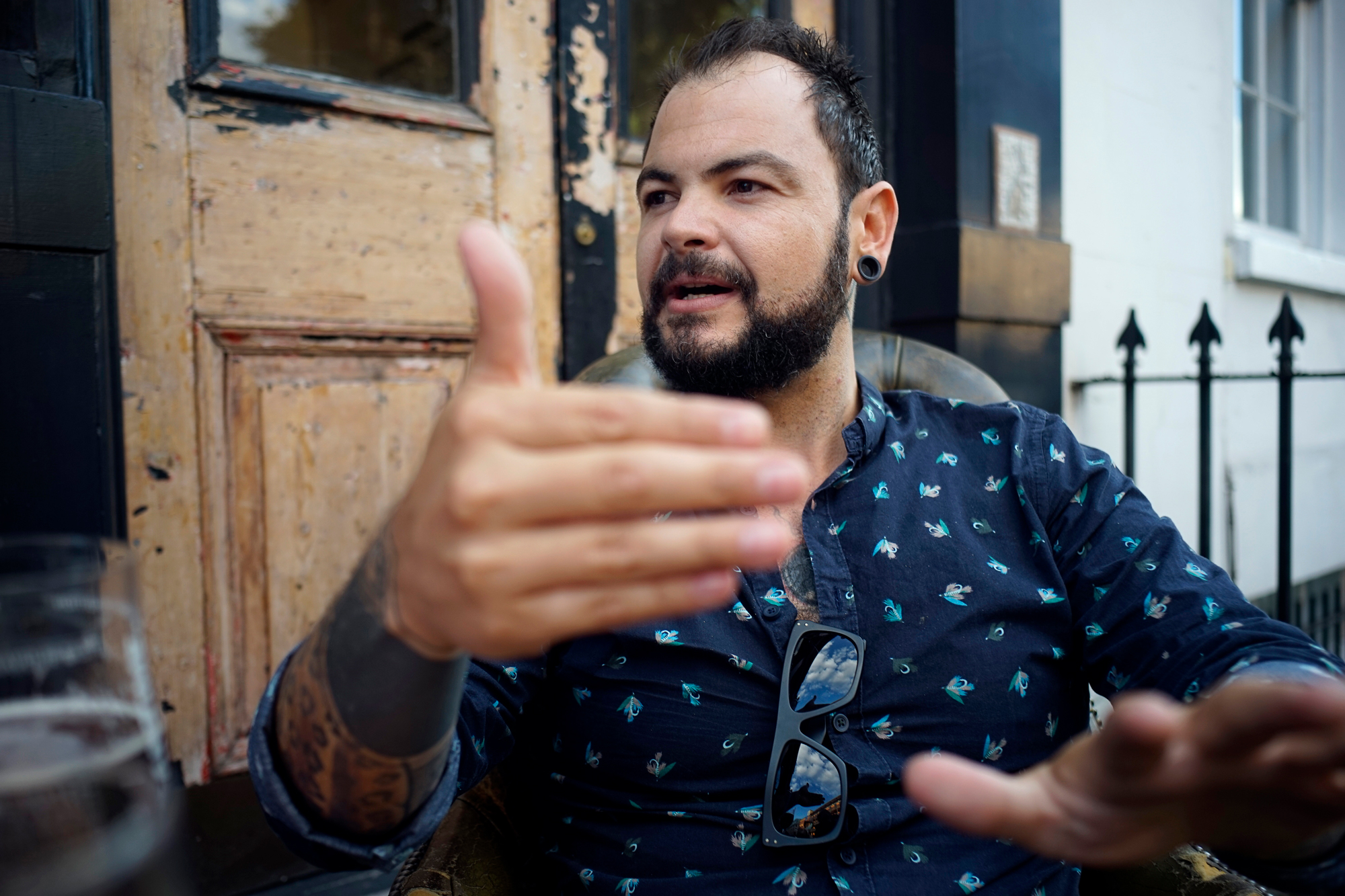
Aleph Aguiar, 32; jazz musician; born in Venezuela; grew up in Spain.
“On one hand, it makes sense to have control of the country and get rid of the government of the EU, but my concern is that it brings the emotional side out and that brings hate – which separates and divides a country that is such a mixture of different nationalities. I fear that this will give people an entitlement to hate. When you give people a reason, they can go very far. Hopefully, it’s not the case. Hopefully, someone will stand up and take control and say it’s about other reasons. Whatever happens though, I’m staying. They will have to physically take me out of here if they want me to go.”

Clara Jorgensen, 22; works at The British Library and studies the history of art; Born in France, but has lived in London for three years.
“I’m a student and am really sad about what’s happened. I really want to stay – that’s the reason I did an English course. In my branch of study – fine art curation – London has the best opportunities and London is very welcoming to foreign people. I felt more comfortable here than in Paris, but now it’s a time of uncertainty and I feel people are closing up. In difficult times, people should do the opposite and reach out rather than close up. One of my classmates doing the same course as me – who’s English and a brilliant mind – voted to leave but didn’t really look at the impact, and just felt he wanted to be out for a nationalist thing. I think we’ve learned that nationalism is really never a good idea, so I was very sad to see that. After all, if he’s around this amazing mix of cultural differences at [university] and is rejecting that, then there’s not much hope for us. Now, I feel it’s going to be a short stay in London, which makes me very sad.”
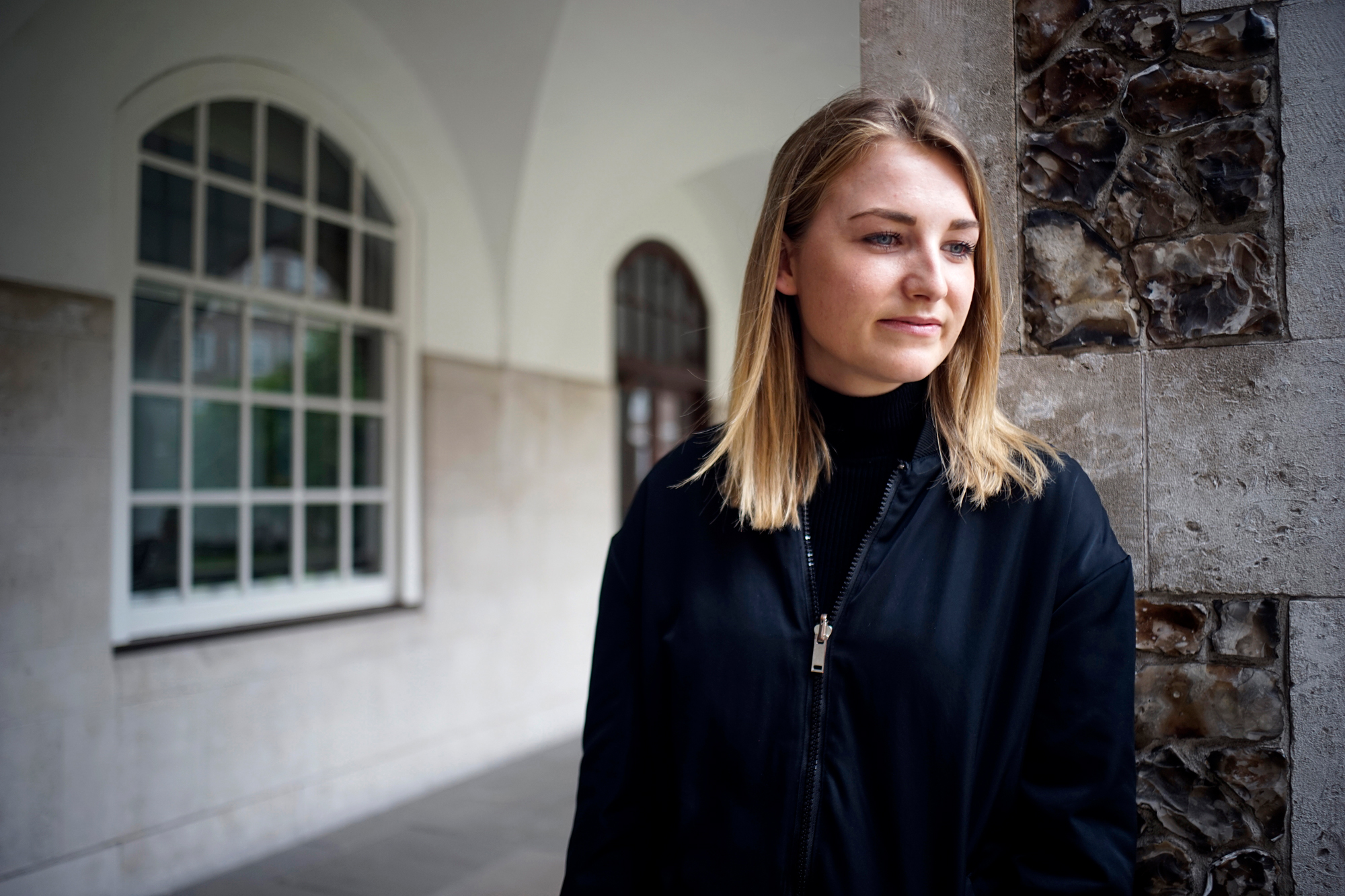
Isobel Kelly, 24; studies architectural lighting design in a graduate program; has lived in London since September 2015.
“Brexit has brought huge uncertainty. For the Irish, Brexit highlighted the disregard for the European context of peace. Border control between the North and South [of Ireland] is highly damaging and retrogressive.”
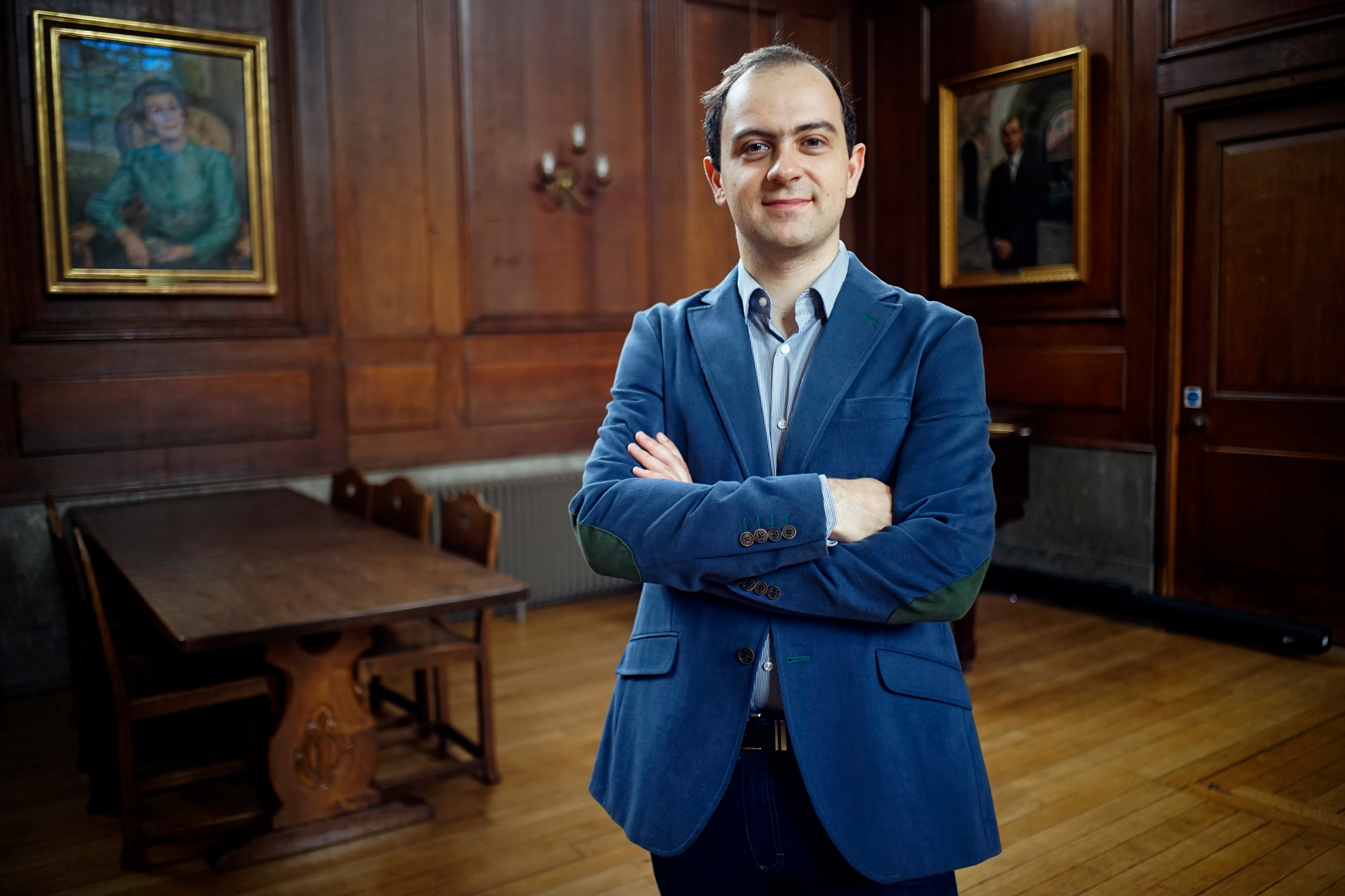
Rares Pamphil; working on his Master’s of Public Administration at the London School of Economics; Born in Romania and studied in the United States.
“I’m surprised that people got so afraid of foreigners and of globalization in such a short space of time – in such a cosmopolitan country.”
 Claudia Greco, 19; undergraduate student in London.
Claudia Greco, 19; undergraduate student in London.
“I came to London to study and wanted to stay for the opportunities here, but I’m not sure now. I don’t want to search every two years for a place to base myself. Life is always tough, but now this Brexit result has changed all that possibility of being somewhere [else] over time. That day, I woke up and checked the result and cried. I went to work at the cafe in Hackney and all I saw were people sniffing and weeping. I may now not be able to stay, some can fly away. But British people can’t. It’s your country.”
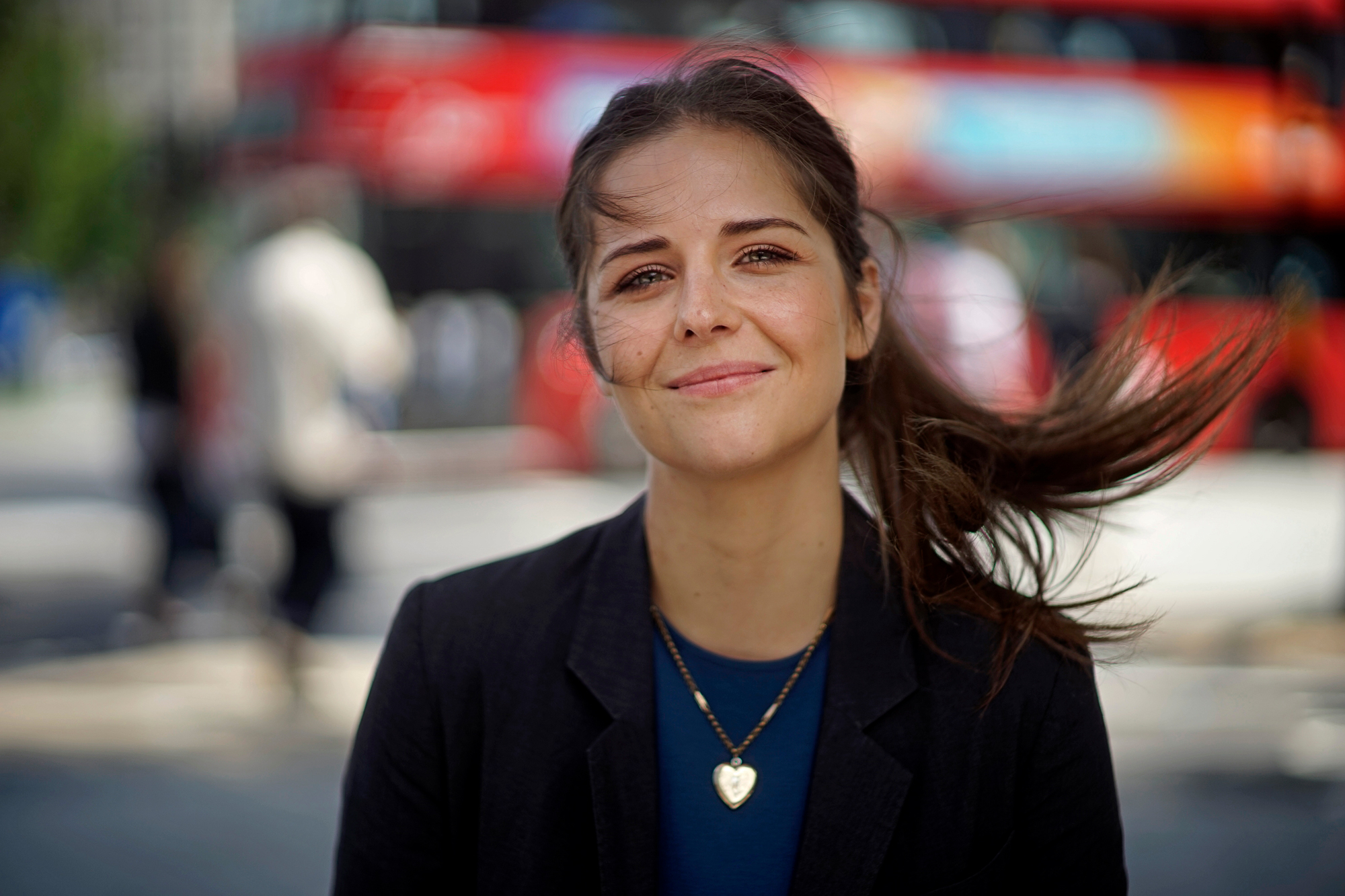
Jadwiga Bronte, 30; works as a photographer and is studying for her pilot’s license; born in Poland.
“My first feelings were of shock and sadness. Then, there was a second feeling that I’m not at home anymore. London has been home for 11 years – even though I was born in Poland and I’m proud of that, but here is home.
My sister from Australia called in tears, my mum is in tears and, for her, what will happen? She’s a nurse in a nursing home. Some other managers there had already started packing. I came here first to study, then my mum came to help and we’ve always paid our way. What happens if we have to go back? We feel like we’ve been betrayed. We never came here to sponge but to work and to be part of Europe. For the first few days, it was like being in a movie – watching silently, something happening outside our lives. And are people now looking at me, that I am not English?”
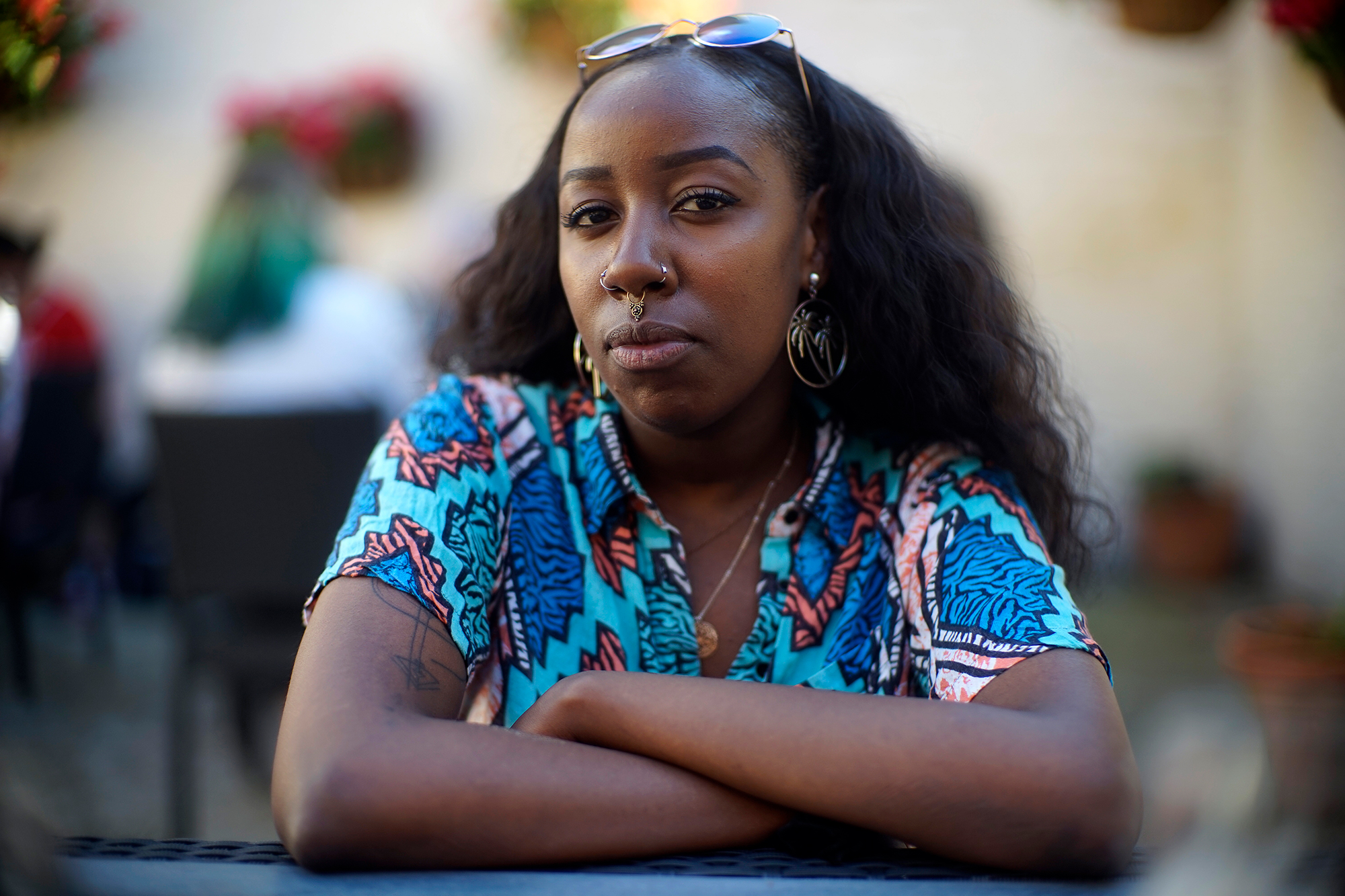 Anita Israel, 23; student born in Kenya, but has lived in London since she was a year old.
Anita Israel, 23; student born in Kenya, but has lived in London since she was a year old.
“I feel a great sense of uncertainty. We have potentially forfeited our workplace rights. Social services are suffering economically, we are no closer to solving the migration crisis and there will be limitations to our freedom of movement within the EU, making it difficult for students like myself to work or study abroad. I fear what will become of my generation.”
 Domizia Salusest, 19; studying at the London College of Communication, Elephant and Castle; from Italy.
Domizia Salusest, 19; studying at the London College of Communication, Elephant and Castle; from Italy.
“The rest of Europe is going to feel really bad about the UK leaving. It’s not just about the migrant crisis. Who’s going to decide who stays and who leaves? Does anyone know? No one seems to know anything. I can’t imagine what’s going to happen. There’s a reason I came here – because there were opportunities. Will that be the same? To be fair, I feel like I should go to Berlin. Its free. There are great schools there. And with Britain out of Europe, the multicultural side that is so attractive here will go.”
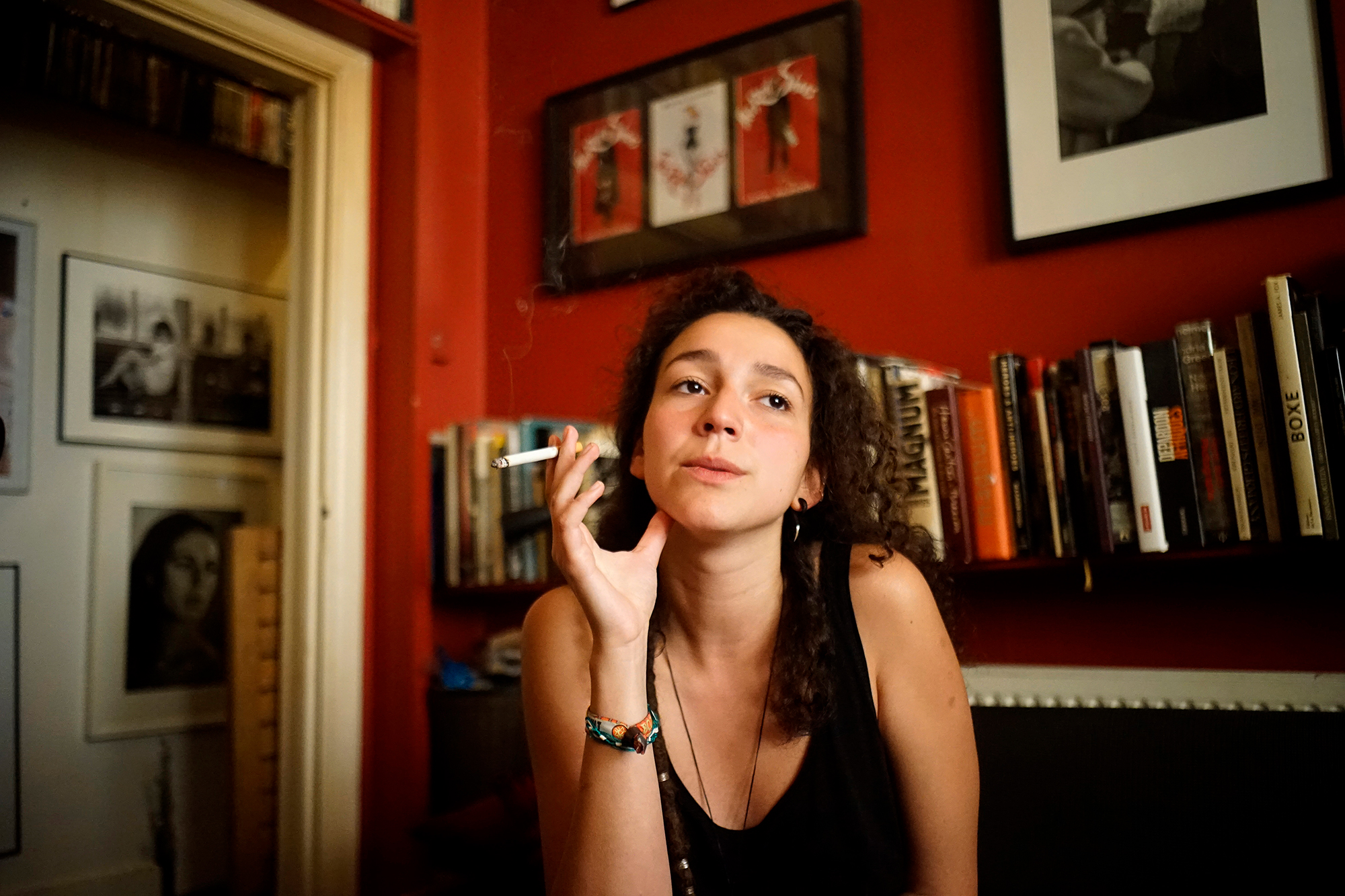 Selma Azzo, 21; student at King’s College London; Born in West London to Spanish and Moroccan parents.
Selma Azzo, 21; student at King’s College London; Born in West London to Spanish and Moroccan parents.
“It’s a shit show. The thing that most gets to me, aside from the economy and bureaucracy, is the racism and how this has divided people. We are going against each other. People who’ve been living next door forever now hate each other. Why? Why are we seeing people in another light? I was so happy at the protest last week – so many young people, passionate young people – who want this to stop. Trouble is, most of the protesters were young Europeans living here who couldn’t vote. This was a city where people could feel welcome, who are now made to feel like foreigners. That breaks the strongest entity we have. So, here we are. It’s also such an unclear situation. Nothing is resolved here, so what can I think? And all those politicians have gone who started this. You know that someone wrote on the Spanish School in Portobello that I went to and has been there for forty years, ‘Foreign scum go home’ – in Ladbroke Grove, the most multicultural area in the most multicultural city. I despair.”

Mo, 24; born in West London to two Moroccan parents.
“People voted without a clue. If it was a vote today with the information we now know, they’d vote differently. It’s economically stable to stay in for my generation. There should be another referendum, but I guess there won’t be now. We’re stuck.”
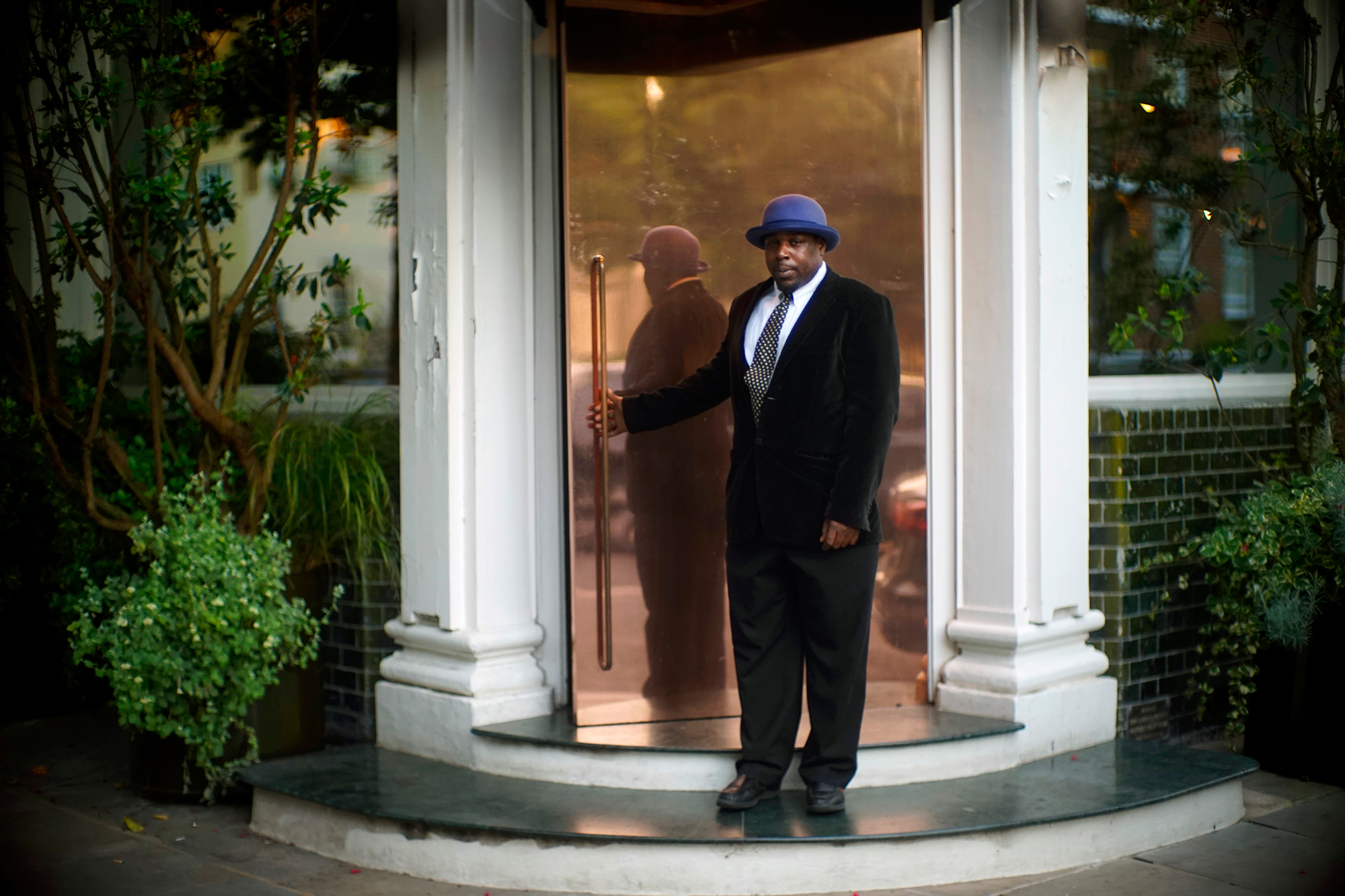 Ashley Johnson, 28; doorman, born in West London to Dominican and Antiguan parents.
Ashley Johnson, 28; doorman, born in West London to Dominican and Antiguan parents.
“I’m from Ladbroke Grove and, growing up, there was Spanish, Portuguese, Irish, West Indian families, so we never thought anything about color or different countries. It’s just really sad. People are playing this racist card now. Where can it end? Things have to get better.”
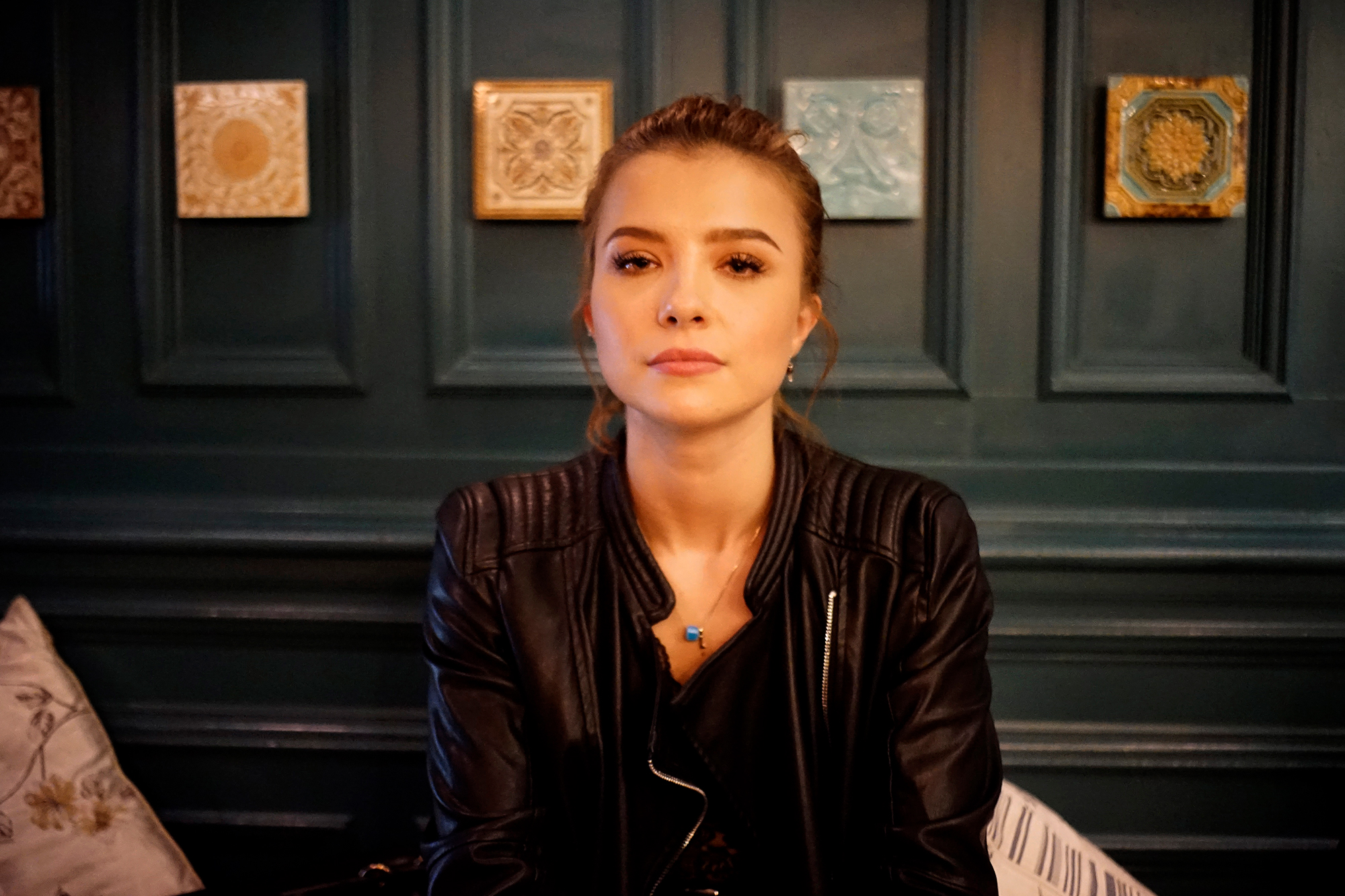 Lauren Branscombe; studies marine biology and works at a bar; Born in West London to German and British parents.
Lauren Branscombe; studies marine biology and works at a bar; Born in West London to German and British parents.
“The UK, a country known for its diverse and rich cultural communities – that prides itself on staying united with the rest of the world – has left the EU? Is the UK now just a standalone island? My grandparents escaped from Germany after the war and immigrated to the UK to start a better life. They had three children who all made something of themselves, and if it wasn’t for my grandparents and this country, where would I be now? I wouldn’t have had the life or the education I have today. It makes me wonder what I could or couldn’t have had, and now that’s to be denied for a new generation.”
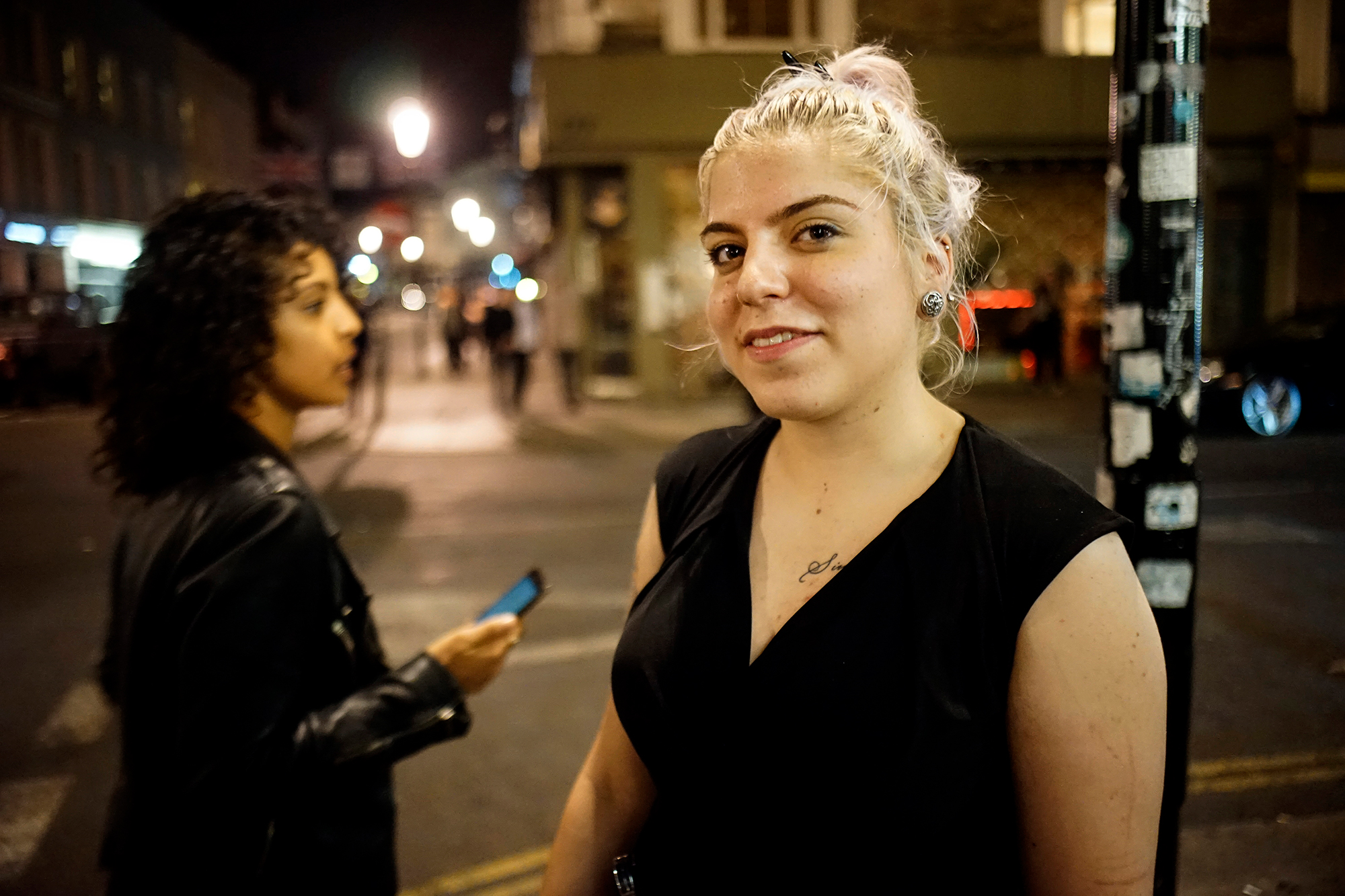 Yovela Pieters, 24; works as a bar manager in London’s Notting Hill; born in South Africa.
Yovela Pieters, 24; works as a bar manager in London’s Notting Hill; born in South Africa.
“The majority of the staff that work with me are [European]. I had a South African passport for so long and I don’t think people realize how expensive and difficult it is to keep getting visas. You’re going to have to get work visas, pay for them. My [European] staff are all hardworking and we need them. They do the work [that] the Brits don’t want to do. Who wants to wash plates, clean the bar, pick potatoes in Lincolnshire? It’s not the Brits. We are struggling to get English bar staff … So what’s going to happen? And what about the expats living in Spain? It’s all their friends who voted to leave. I hope they all get sent back! There’s all this new racism – people being able to say, ‘go back.’ The openness of that and the looks. I’m Jewish, so I have some experience [with] that. But people don’t realize the Poles and those targeted have a really tough job, in not their own language … My plan was to move to Amsterdam next year, and now I don’t know … What a mess.”
 Eleni Tsiketti, 21; student in London; born to Italian and Greek parents.
Eleni Tsiketti, 21; student in London; born to Italian and Greek parents.
“Most people don’t know what the EU actually is. No one knew. No one thought about the peace across Europe since the EU. Things are going to change for the worst here. Education is going to get more expensive with also a visa to be in the country. It makes me think how much more the bills will become. I want to stay because I love the city and its rich international vibe – or I did. Now, with this change, tourism will also change with restrictions on visas. They will make other choices that will be easier and cheaper and less hassle. Travelling will just become a problem. And the racism will increase … It’s horrible. People don’t think [that] I’m Greek until I open my mouth. Then, they ask, ‘Where are you from?’ Some – younger ones – think, ‘that’s great,] older ones often don’t … That older majority, too, were the ones who voted out – not for their children, but for them.”
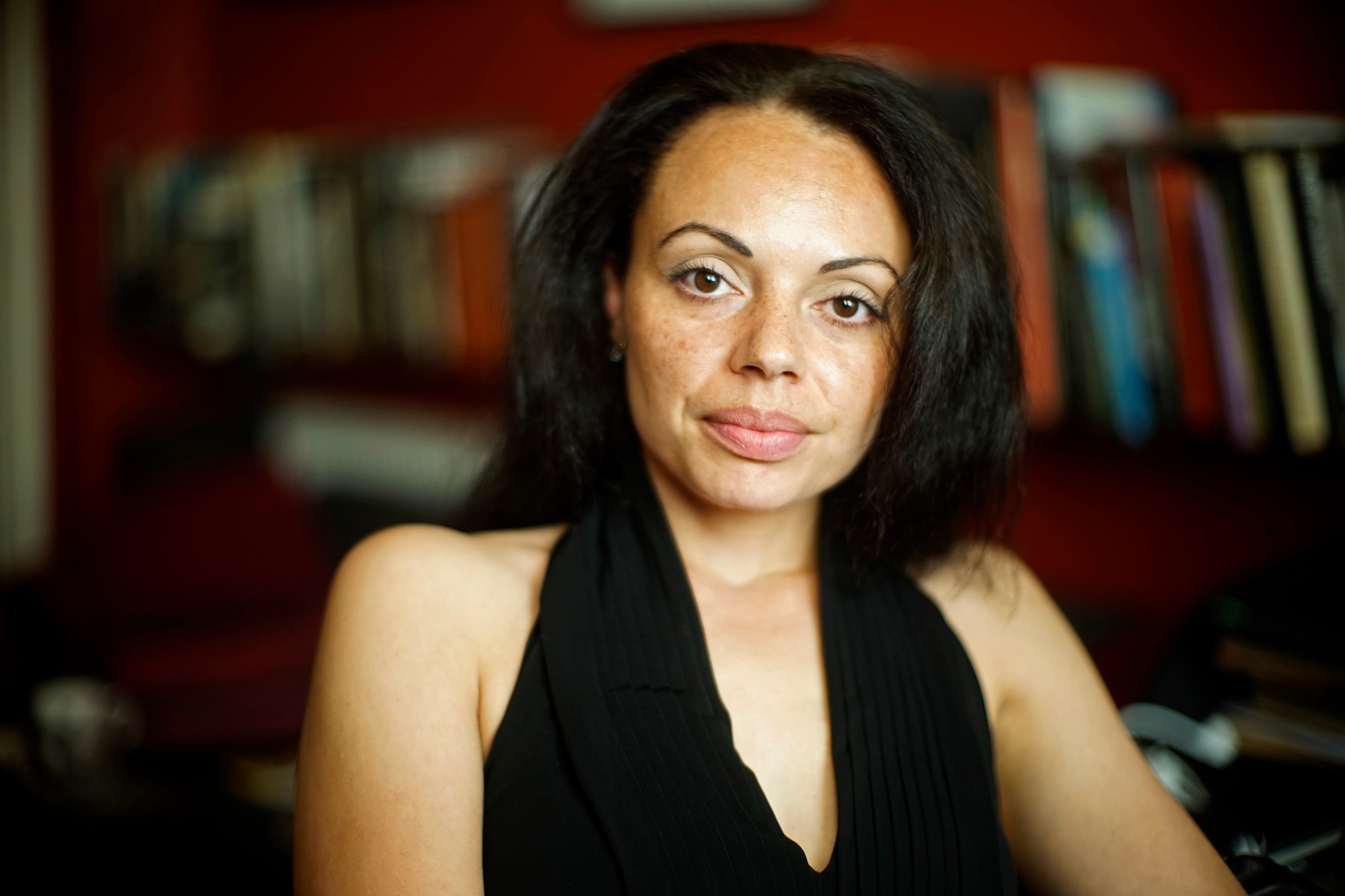
Alicia Charles, 29; actress born in Leicester to English and Jamaican parents.
“The impact is depressing. The people I’ve met here – who aren’t from here – feel unwelcome now. It’s kind of made me feel I have to apologize, which is sad. I’m from Leicester, the most multi-cultural city in Britain. Someone said to me when I went home the other day – ‘It would be good to stop immigrants.’ But he’s from Pakistan, so I said to him, ‘How can you say that? What if your parents weren’t allowed here? Where would you be?’ It [has] divided people and put them into a backward frame of mind that we thought we had got rid of a long time ago.”

































